‘My life’s on hold’: inside the UK’s hostile environment for hidden migrants

Roula Khalaf, Editor of the FT, selects her favourite stories in this weekly newsletter.
When Bilqis’s former partner started hitting her, she wanted to call the police. But there was something that Bilqis, who asks that only her first name be used, feared more than the beatings.
Sitting in the churchyard of St Mary’s, the 250-year-old parish church of Lewisham in south-east London, she recounts how her partner would remind her she had no legal right to be in the UK. The police would arrest her, not him, if she contacted them. They would send her and her children back to a country where she feared there were people who posed a serious danger to her family.
“He made me believe from the beginning the police would try removing me and the children back to Nigeria, which I never wanted,” she recalls. “So that’s why I was enduring his violence . . . I was scared.”
Bilqis’s experience — of fearing the police as much as a violent abuser — is just one of the indignities faced by many of the hundreds of thousands of people who, for a wide variety of reasons, are living in the UK without current legal permission to do so.
Members of this group — described variously as “illegal immigrants”, “unauthorised migrants” or “undocumented migrants” — are locked out of legal work, unable to rent property or open bank accounts. They are pushed to the roughest margins of society.
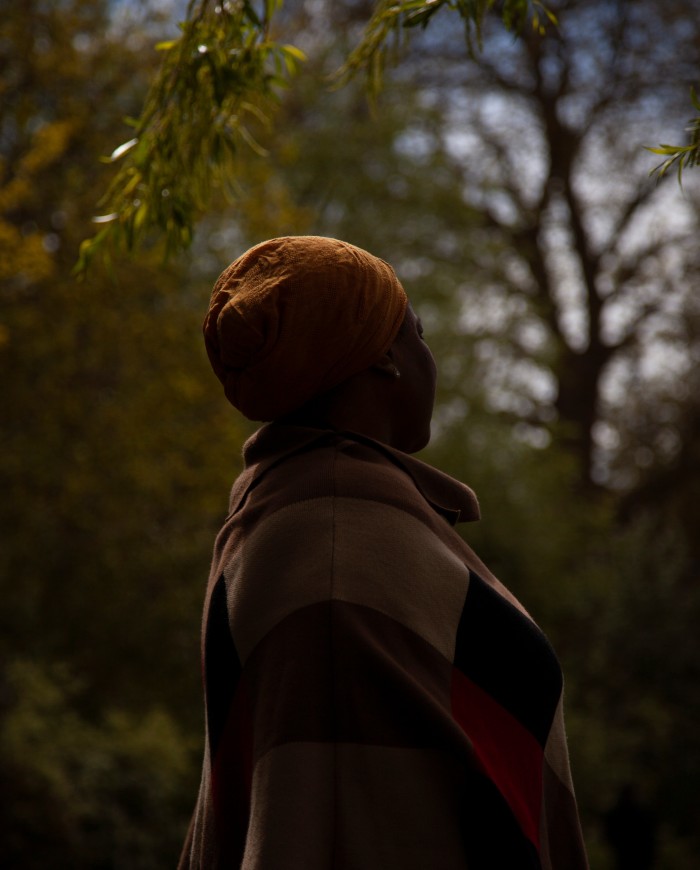
Yet their numbers seem to be swelling. Statistics on a group that is hidden are hard to come by, but the US’s Pew Research Center estimated that in 2017 the UK’s population of unauthorised migrants was between 800,000 and 1.2 million — a 56 per cent rise from its estimate 10 years earlier. More conservative estimates reach at least 600,000.
As a result, Britain has one of the highest proportions of unauthorised migrants in Europe — perhaps almost 2 per cent of the total population. Christine Bernard, headteacher of St Mary’s Church of England primary school, which some of Bilqis’s children have attended, estimates that at any one time about 15 or more of her 230 pupils — nearly 7 per cent — live with people who have no legal right to reside in the UK. The concentration is typical of poorer areas in big cities, especially London.
The presence of such a large unauthorised population has received far less attention than the arrival of asylum seekers. Some unauthorised migrants are people who stayed on after their asylum claims were rejected, but most arrive through routes such as student, visitor or work visas. They lapse into unauthorised status when they overstay these visas or fail to find the money to renew them. Many others were born in the UK to parents who, for various reasons, did not become British citizens (the UK scrapped birthright citizenship, where anyone born here is automatically a citizen, in 1981).
The migrants’ lives are dominated by government policies known as the “hostile environment”, which have sought to make it so hard for them to work, find accommodation or seek medical treatment that they will feel forced to leave.
Tamim Hasan (not his real name) describes how, before the pandemic, he survived on various jobs in the shadow economy, as a chef, distributing leaflets or as a cleaner earning “whatever I get — £5, £10 — in order to survive”. Employers can face fines if they employ undocumented migrants; landlords face trouble if they house them; banks will not hold their money; and hospitals are meant to charge them if they give them non-urgent treatment.
The hostility of the Home Office — the government department that handles immigration — towards this group became notorious in 2013, when officials commissioned advertising vans to drive around parts of London thought to house large numbers of unauthorised migrants. The vans bore the slogan: “In the UK illegally? Go home or face arrest.”
Bilqis says she used to wake up every day thinking: “Let the world come to an end . . . If this world ends, I won’t have to go back to Nigeria.” She lived in continual fear of her partner’s violence — “it was like a combat zone, always physical fights,” she recalls. But underneath it all was the nagging worry about her status: “Every time I hear a police siren or an ambulance siren, I think it’s the police coming for me.”
In interviews with the Financial Times in parks and open spaces around London, members of this marginalised group describe how rigid rules have steadily edged them out of the system. Others find themselves stuck between a government that will not recognise their fear of persecution and the prospect of going to a country where they genuinely fear harm. Some migrants feel badly let down by what they believe are errors by the Home Office.
In Welcome to Britain, immigration barrister Colin Yeo writes that the problem will persist as long as the UK makes its immigration system ever more complex and expensive: “Politicians have repeatedly stated that unauthorised migrants are not welcome and have continually passed laws criminalising their presence, yet no government has been willing to detain and remove them.” (This piece follows Yeo in using “unauthorised” because some migrants were authorised to live here but were never issued documents to prove it.)
The Home Office maintains that people with no right to remain in the UK who do not leave voluntarily should be “in no doubt” that they will be removed. “Overstaying is against the law, unnecessarily costs the taxpayer money and is unfair on law-abiding migrants who come to the UK through the legal channels,” the department says.
It also insists that its New Plan for Immigration will make it easier to remove people from the UK. Announcing the plan to the House of Commons in March, home secretary Priti Patel said: “The persistent failure to enforce our immigration laws, with a system that is open to gaming by economic migrants and exploitation by criminals, is eroding public trust and disadvantaging vulnerable people who need our help.”
The constantly shifting immigration rules have pushed Runako Nyauchi’s life off course. Like many unauthorised migrants, Nyauchi — not his real name — came from Africa, which accounted for more than half of those surveyed in a recent report for the Joint Council for the Welfare of Immigrants. He is also from a former British colony — former colonies with English as an official language made up eight of the top 10 countries of origin for unauthorised residents in the JCWI’s survey.
Nyauchi speaks in the precise tones of the English upper middle class as he recounts how his parents sent him, aged 15, from Zimbabwe to school in Dublin to escape violence and chaos. He later moved to London, holding a student visa while taking an undergraduate and then a master’s degree in finance. Using a “post-study work visa”, he worked in sales for a financial services publication.
By 2011, Nyauchi had exhausted that visa’s two-year time limit and new rules were demanding that any employer taking on non-European citizens obtain a “sponsorship licence”. That narrowed his options: “It was just difficult finding a job I liked . . . where they also had [a licence].”
Instead, he returned to studying but found student visa rules obliged him to stick to a new higher-level qualification in finance, a subject in which he had now lost interest. Depressed and unmotivated, in 2013 he was thrown off a course where he was meant to be training as a financial analyst — and lost his visa as a result.


Nyauchi says it felt hopeless to apply for asylum or another immigration status. He had seen too many applications by other Zimbabweans rejected. Having left the country so young, he could not detail the same record of anti-government activism that has helped others gain refugee status.
Yet it felt impossible to return to Zimbabwe. “It may be easy to say, ‘Just go back,’” Nyauchi says. “But I haven’t seen my life in Zimbabwe for a very long time, since I left. Because of the things that were going on there, my parents sent me to Europe because they wanted a better life for me.” Now an activist in Regularise, a group campaigning for better treatment for unauthorised migrants, he has spent the past eight years doing casual work and either squatting or providing live-in security in empty buildings.
His experience reflects the gradual toughening of the UK’s immigration rules. Sarah Teather, director of the Jesuit Refugee Service, a Catholic charity working with destitute asylum seekers, attributes the changes partly to the attempts by the UK’s Conservative-led governments to bring annual net migration into the UK below 100,000. Teather, a former MP for the centrist Liberal Democrats, was briefly a minister for her party in the 2010-15 coalition government which introduced many of the changes.
“The Tories came in with this — in my view — mad policy that they were going to have a cap on immigration,” she says, sitting outside a coffee shop near her south London home. It was easier for ministers to tighten the rules and restrict migration in fields such as asylum, she suggests, because it was politically more palatable than choking the flow of migrant labour to jobs. “There were very few places they could generate [the fall in migration] without causing huge harm to the way the country functioned.”
Like Nyauchi, Tamim Hasan initially held a student visa. Sitting with hunched shoulders and downcast eyes by a pond in Beckton Corridor Park, east London, he recounts how he ended up borrowing heavily from friends in London and his family in Bangladesh to fund a six-year legal battle with the Home Office.
Hasan arrived in the UK from Bangladesh to study tourism and hospitality management. In 2013, he applied for an extension to his visa so he could retake an exam. His identity documents and the new visa went missing in the post. Royal Mail insisted the tracking number that he received from the Home Office was invalid. Neither Royal Mail nor the Home Office would take responsibility for resolving the problem.
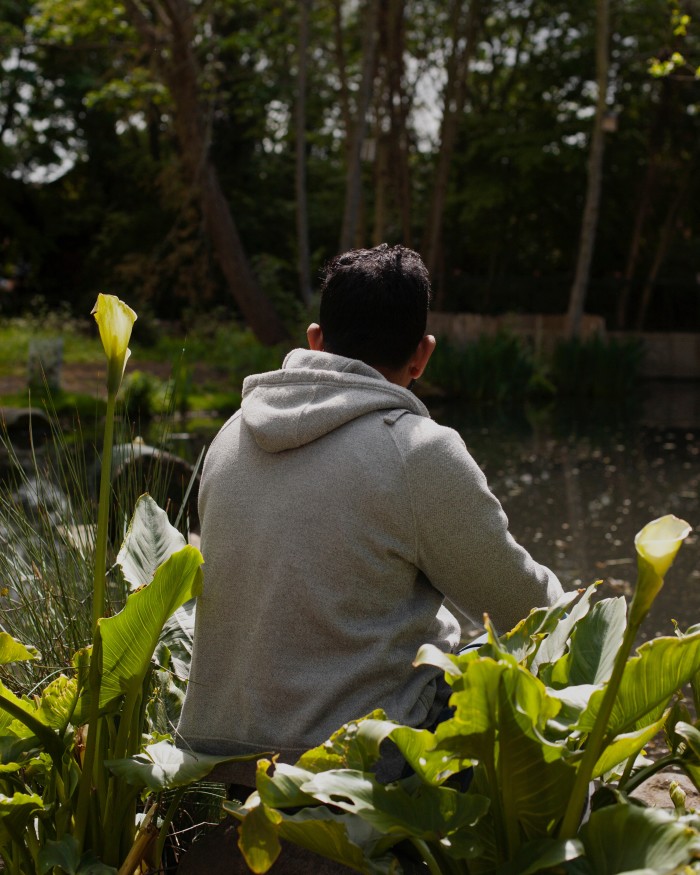
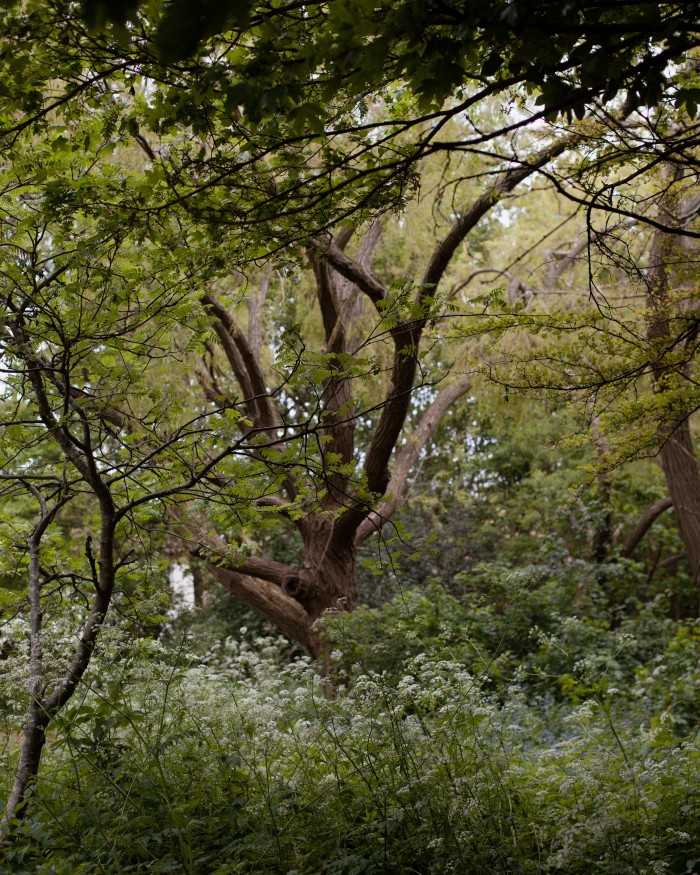
Hasan twice won rulings that the Home Office should supply him with a new visa. It appealed against both decisions, however, leaving him without authorisation to stay and saddled with debts from his legal bills and years of living expenses. He is now estranged from his father in Bangladesh, who has threatened to have him imprisoned over the debt if he goes back. His former girlfriend has given up on his return and married someone else.
Hasan expresses a feeling that is common among unauthorised migrants, of being trapped. “I can’t work,” he says. “Even if I’m sick, I can’t go to the doctor’s. And back home the same thing — [to] the people I love most, I’m the most hated person.”
Like thousands of teachers, social workers, religious leaders and charity workers, Christine Bernard grapples daily with the reality of how unauthorised migrants live, work and raise children in the UK. “We’ve had to give our children school uniforms, we’ve paid for them to go on school trips. We’ve bought them clothing to go on school trips. It’s costing the school a lot of money but there’s no other way to support our children,” she tells the FT in her office at St Mary’s, a brick-built Victorian primary school.
Bernard leans forward as she describes the plight of some families. “I’ve ended up having to sit in the homeless persons’ unit with families, really telling [the staff]: ‘Look — this person has nowhere to go.’ They’re not readily believed. We had one family who sought refuge in a church.”
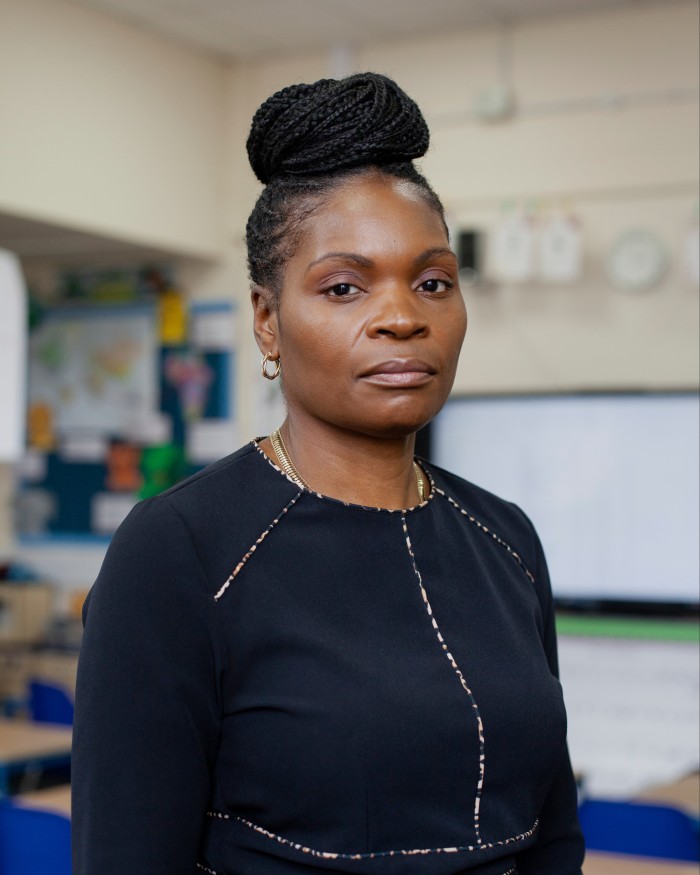
The substantial extra costs to the school go unrecognised because the pupil premium — paid to schools to cover the additional costs of working with poorer children — is based on the number eligible for free school meals. Children from unauthorised migrant families are ineligible for free meals.
They often lack other basics, such as space to do homework, Bernard adds. And when local authorities are persuaded that families are so destitute they have to house them, it is often on the other side of London or even its outskirts. Many make exhausting hours-long journeys on public transport to St Mary’s to keep children in their existing school. Bernard’s deputy, Matt Wright, says the families he has met are established members of the local community who want to help their children. “They want to be able to work,” Wright says. “They want to be able to contribute to society. They want to better themselves.”
Alison East, a solicitor employed by Coram Children’s Legal Centre, part of the Coram group of children’s charities, has worked with many families at the school. She says a typical case involves a family that has temporary leave to remain in the UK but has not yet completed the arcane 10-year process of gaining the most secure indefinite leave to remain status. “People want to become regularised,” East says. “It’s not that they want to live in the shadows.”
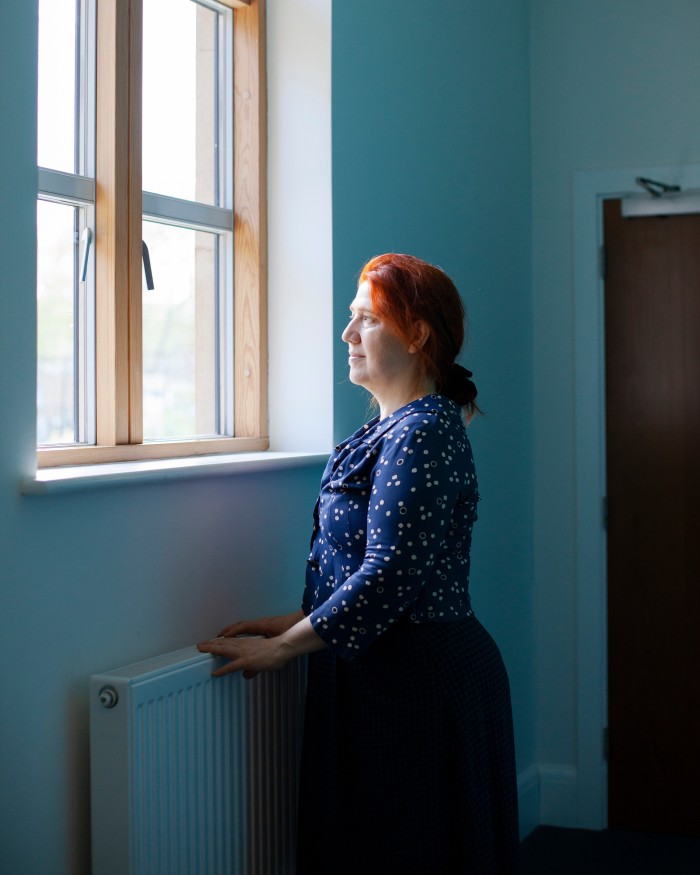
Such families, often relying on poorly paid parents, have to apply for new visas every two and a half years, at a cost of £2,612 per family member in fees, with any legal bills on top. They are also barred from receiving state benefits. East says the UK’s high visa fees and the system’s complexity mean some face a perennial struggle to abide by its requirements. Much of her work concerns those in danger of failing to make payments for visa renewals in time, risking their right to work and being sent back to the start of the 10-year process.
Hannah Gretton, a community organiser for South London Citizens, which campaigns for easier routes to regularised status for unauthorised migrants, points to the expense and bureaucracy entailed in arranging one of the simplest immigration transactions — registering a child as a UK citizen.
“It’s not even an application — they have the right [to citizenship] if they were born here and lived here 10 years,” Gretton says. “They’re made to pay £1,100 and need a lawyer to check their papers because if they’ve made a mistake they’ll need to apply again.” The cost and complexity prevent many people from registering their children as citizens, she says.
Yeo, author of Welcome to Britain, says he can understand why the Home Office, having suffered severe budget cuts, wants to make the immigration system self-funding through fees. But he goes on: “It’s just wrong public policy if you charge such high fees that people are put off or are literally unable to afford lawful status or, even worse, never become citizens.”
The feeling of being trapped is especially intense among the many unauthorised migrants who fail to persuade the UK authorities that their problems in their former countries warrant asylum protection, but who are still too fearful to go back.
Ashiq Bhutta, 49, says he came to the UK in 2011 from Pakistan to pursue postgraduate study on a student visa. But he embarked on the course to escape a dispute over land with a cousin which, he says, made him fear for his safety.
Before he arrived in the UK, he says he was working for Pakistan’s Atomic Energy Commission, a highly sensitive part of the government that reports to the army. His hurried departure from Pakistan breached rules requiring anyone working for the commission to clear travel plans with officials and he says the country’s military is now seeking to detain him.
As his Italian girlfriend exercises their dog in Gladstone Park, north-west London, Bhutta recounts, with a mixture of bitterness and weariness, how he asked for asylum when he realised how dangerous it would be to return to Pakistan. After UK officials refused to believe his account and grant him asylum, he felt he had no option but to stay on, unauthorised. He has survived in the tough world of black-market building work, frequently bilked out of his pay. “If I had a 20 per cent chance of a nice life in Pakistan, I would leave,” he says. “But in Pakistan no one is safe.”
The experience of Mimi — not her real name — shows how difficult it can be for people to recover from events that tip them into unauthorised status. “My nationality is disputed; where I was born is disputed; who I am is disputed,” she says, at a meeting in Telegraph Hill Upper Park. “Everything is disputed.”
Mimi, who had always been told she was born in the UK and was a British citizen, was stopped at passport control at Heathrow airport in 2011 when returning from holiday in Nigeria. Accused of using a fake passport, she found herself held in immigration detention for two and a half years. Mimi insists she was using a normally obtained UK passport.
She has since discovered she was the victim of trafficking while a child and that the people she regarded as her parents did not tell her the truth about her origins. “Where do I go to find out about myself? . . . I’m living here, I haven’t lived anywhere else. I know nowhere else . . . When you don’t have anybody to tell you your history, how do you recall your history?”
Looking out over the park’s spectacular view of London, she is exhausted by a decade of legal battles. Her once-satisfying professional life has been replaced by a monotonous regime in the poor-quality accommodation provided by the Home Office. “It has just been going round and round in circles. Basically, I’m stuck here; I cannot go anywhere; my life has been on hold.”
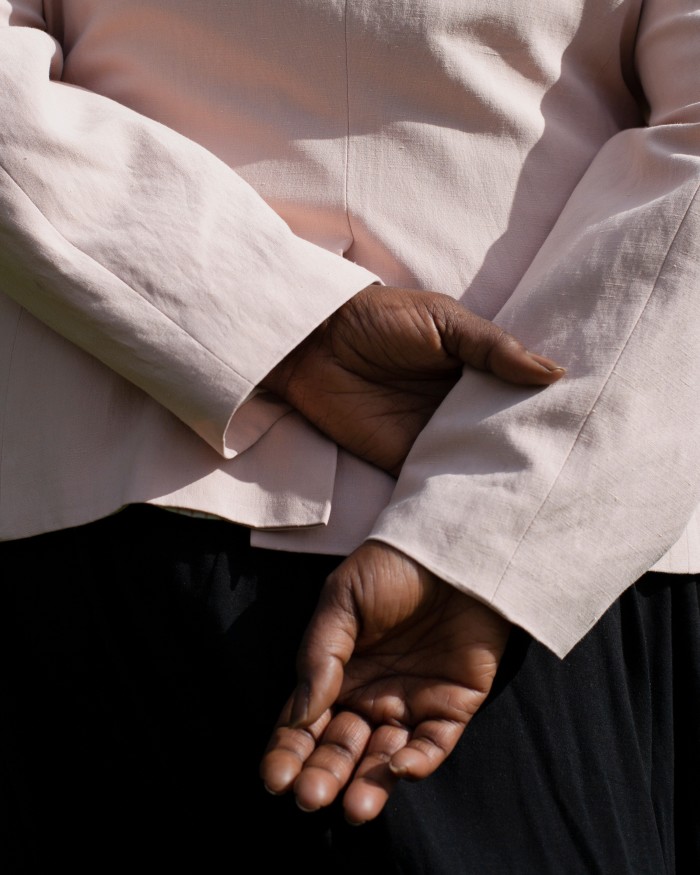
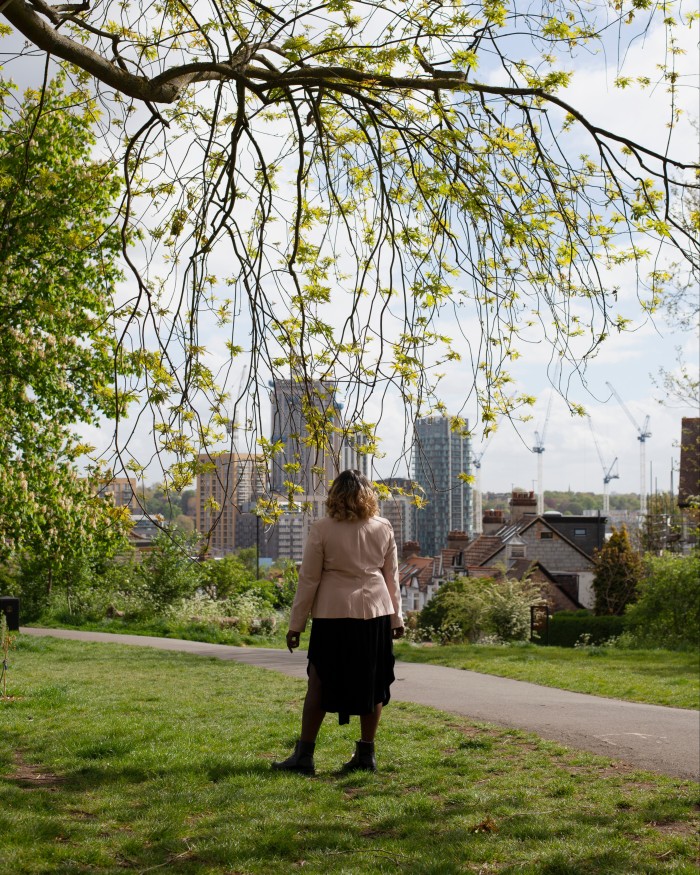
‘The challenges could soon grow even more substantial. Many groups working with immigrants fear that the UK government’s new plans to change the asylum system — which will delay the consideration of some people’s claims and withhold permanent settlement from some successful applicants — could push still more people into the limbo of unauthorised status.
Meanwhile, June 30 marks the deadline for UK-resident citizens from the 27 EU states, plus Switzerland, Norway, Iceland and Liechtenstein, to register for the government’s EU Settlement Scheme, which will grant them the right to live and work in the UK. While the Home Office insists the scheme — which has generated 5.4 million applications — is “hugely successful”, there are concerns that the need to apply may have passed by some of the most vulnerable. That would plunge them instantly into unauthorised status.
Marta Tildesley, a “school home support practitioner” whom St Mary’s has hired to deal with immigration problems and other barriers to pupils’ learning, says: “We’re working quite hard to publicise [the scheme] and help parents and families who need to go through that process.” But if large numbers miss the deadline, it could further exacerbate the already substantial problems that schools such as St Mary’s face.
Bilqis first brought her children to live with their father in the UK in 2013. Her partner had fled Nigeria to escape family members and business associates angry after the collapse of the family-owned money-exchange business that he managed. Fearing a creditor might take one of the children hostage to try and force her partner’s return, she decided they would be safer in Britain.
Initially Bilqis stayed on in Lagos out of reluctance to give up her “very good job” at the state electricity company, but in 2016 she joined her family in London, concerned about how the boys were being looked after. Her immigration problems largely stemmed from her assumption that if she entered the UK on her existing visitor visa it could be converted into a resident’s visa. Such a change is almost impossible to achieve while within the UK.
She started to break free of the trap of unauthorised status three years ago. By then she was estranged from her partner, who was refusing to give her any money to bring up their children. “I was now at a dead end, so I was really desperate,” she says.
In November 2018, Bilqis, who is Muslim, approached Fouzia Razvi, a volunteer at Lewisham Islamic Centre who is also a leading activist at South London Citizens. Razvi worked to find an alternative to the privately rented flat from which Bilqis faced eviction. She also put her in touch with Citizens’ project to help unauthorised migrants regularise their status.
Charitable services were critical to Bilqis. In summer 2019, facing possible eviction again, she turned to the Catford corps of the Salvation Army, the Christian group known for its social action. It referred her to Praxis, a group providing support for migrants and refugees, which in turn connected her with a solicitor at Ramfel, a legal support charity.
In April 2020, she won her case on appeal — based on her right to a family life under the European Convention on Human Rights. The judge cited her involvement in the local community as part of the justification for the decision. “They said because of my record of aiding good works in the community, because they had evidence from the mosque and Citizens UK, the judge said we got a positive decision,” Bilqis says.
Mimi is working with the Jesuit Refugee Service to reach a similar resolution. Nyauchi, meanwhile, will in three years have spent 20 years living in the UK. At that point, he will be able to apply for leave to remain based on long residence — although this means applying for and paying for the expensive two-and-a-half year visas that make up the 10-year route to indefinite leave to remain. Bilqis is on the same route, while Hasan is looking for a solicitor who will take on his case on a pro-bono basis.
Gretton regards solutions that take 30 years or rely on combinations of multiple charities as unequal to the scale of the challenge. She says the only option is a mass regularisation of unauthorised migrants’ status, allied with a reduction in the system’s cost and complexity.
Yeo questions whether a blanket amnesty is the right answer to the problem, saying it would be unfair to the millions of people who have put in considerable effort to maintain lawful status. He is, however, fiercely critical of the current system’s inflexibility. “There’s a genuine public policy problem here but there’s no way we’re getting it right at the moment,” he says.
Since being granted leave to remain, Bilqis has transformed her family’s life. She is entirely free of dependence on her former partner, is sitting exams in maths, English and IT, and has trained as a support worker for women with learning difficulties. She started the job in March this year and proclaims herself “really, really optimistic about life”.
“I’m sure my children’s future is good,” she says. “They’re all doing very well.”
The experience of coming through her trauma has wedded Bilqis more closely than before to the UK. “This is where our home is now,” she says. “In the last two years, I’ve been able to meet people, people I can relate to, people that make me feel positive about myself.”
But few unauthorised migrant families are able to make such a transition. Many of the group are, like Ashiq Bhutta, unable to return to their home country but surviving on the very margins of UK society. Exhausted by a decade of struggles with the Home Office and unscrupulous building contractors, Bhutta concedes that, compared with his native Pakistan, the UK is a “nice country”.
“It’s a heaven for people — the people who have money, who have status, who have documents,” Bhutta says. “For a migrant it’s hell. Undocumented? Illegal? It’s a hell.”
Robert Wright is the FT’s social policy correspondent. His 2020 FT Magazine piece “Behind Closed Doors: Modern Slavery in Kensington” has been longlisted for the Orwell Prize for Exposing Britain’s Social Evils
Follow @FTMag on Twitter to find out about our latest stories first
Comments